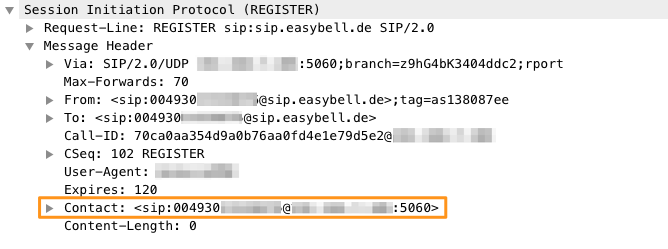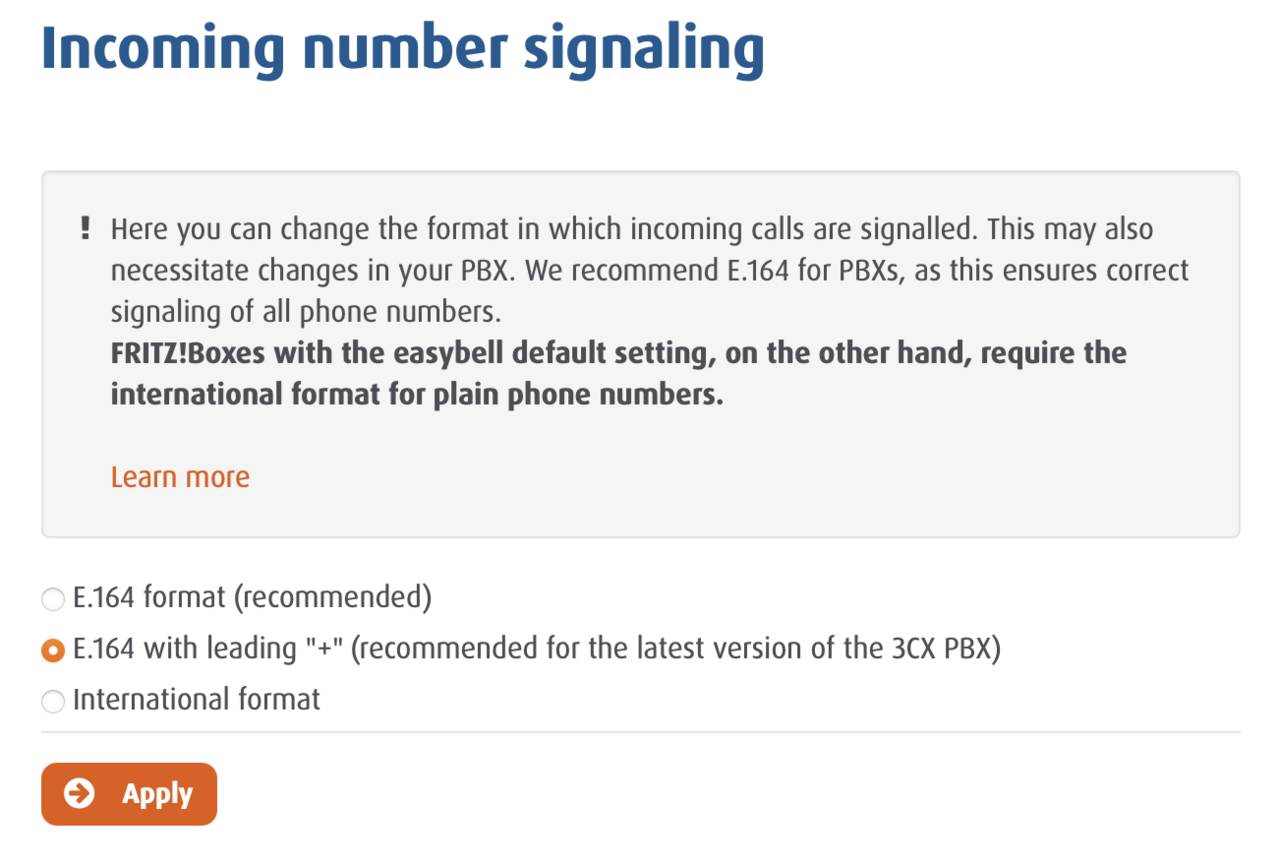Format of phone numbers for incoming calls
In order to create the routing settings in your PBX correctly, you need to know in which format your phone number is signaled.
You have three different options to choose from in your easybell customer portal, which you can switch in the number management via "Number signaling".
We would like to briefly explain the modes:
1. E.164-Format
Default for merged accounts and extensions of number blocks (DDI)
With the E.164 format, the international dialing code is specified without leading zeros (example 493012345).
If you use the E.164 format, the information for call number signaling is taken from the SIP-Invite. Here the complete dialed phone number is stored in the TO: header in E.164, i.e. without leading zeros.
2. E.164 format with leading "+"
Standard for 3CX telephone systems
Some pbxes, including the 3CX, expect signalling in E.164 format with a leading plus sign.
Similar to the E.164 standard without a plus sign, the information for number signalling is taken from the SIP invite.
The E.164 formats are easier to process for most pbxes and allow more precise routing than the international format, for example.
We therefore strongly recommend using one of the two available E.164 formats instead of the international format.

3. International format
Default for trunks and single phone numbers, as well as virtual DDIs
In the so-called international format, there are two zeros before the country code. For example 00493012345.
If you choose to use the international mode, the information to be signaled is taken from the so-called Contact header. This is automatically transmitted when a SIP trunk is registered and may be configured freely.
Potential issues when using the international format
- The information in the Contact header must be configured correctly. If you use the international format, your phone number should also be stored in the international format in the Contact header! Otherwise, error-free routing is not guaranteed.
In some cases, especially with Asterisk-based systems, the formatting may differ in the default setting. In this case, please check the configuration of the telephone system. This field is called differently depending on the phone system manufacturer, e.g. "Contact user" for FreePBX or "Auth user" for Askozia. - Since a phone number block registers only once, i.e. sends only one contact header with only one phone number, it is not possible to guarantee unambiguous routing, especially for phone number blocks of unusual size. This is because it can happen that several phone numbers within this block are signaled with the same information from the Contact Header.
Attention!
If you use the international format, extensions of number blocks are still signaled in E.164 for technical reasons. You must therefore take two different formats into account in the routing settings of the telephone system.

